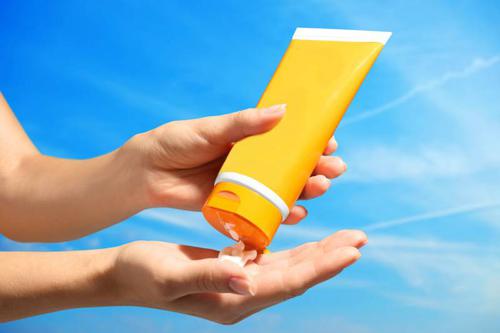Wondering How Long Does Sunburn Last?
Before you plan a hike or head out to the beach this weekend, you should load up on sunscreen and make a plan for keeping yourself hydrated. While you are happily soaking up all the Vitamin D, you may end up getting a sunburn at the end of the day.
A sunburn is a form of tissue damage due to exposure to the sun's UV rays. Its symptoms range from mild tanning to burning, redness, and peeling of the skin depending on the severity.
Risks of Sunburn
Sunburn poses several short-term as well as long-term risks. In the short term, you'll face soreness, redness, and even blisters (in case of severe sunburn). The long-term effects, mostly caused by the longer UVA rays that penetrate deeper, are premature aging, high incidence of freckles or moles, and cancer.
Types of Sunburn and How Long the Effects Last
How long does sunburn last? Typically, it depends on the severity of the condition.
1. Mild sunburn
The effects of mild sunburn can be felt about 6 hours after your exposure and it's characterized by redness and some degree of pain. So how long do sunburns last in case of relatively less sun exposure? Discomfort due to mild sunburn can last for 3 to 5 days and may lead to peeling of the skin towards the end.
2. Moderate sunburn
Redness, sensitivity, and hotness are the symptoms of moderate sunburn. If you have moderate sunburn, it would be wise to reach for over the counter medicines or natural unguents like aloe vera gel. The effects of moderate sunburn can last upwards of 5 days and your skin may peel towards the end as the dead tissue regenerates.
3. Severe sunburn
Severe sunburn is undoubtedly dangerous and can cause extreme discomfort. You may even need to see a doctor or be hospitalized if you notice the following symptoms (in addition to the red and sensitive skin):
- painful blisters
- chills
- fever
- dehydration
- dizziness
- accelerated pulse rate
- nausea
The immediate symptoms of sunburn-like redness and soreness usually aggravate 24-36 hours after sun exposure, and the pain is at its peak between 6-48 hours after burning. If the damage is such that the tissue needs to regenerate, your skin will generally start peeling 3-8 days after being exposed to the sun. The symptoms generally last more than a week.
4. Factors affecting sunburn
So how long does a sunburn last if you've been exposed to the sun for a long time? The answer, as you may have guessed, is that it depends on your sunburn severity. But it does have a direct correlation with the exposure length.
Other factors that determine the degree of sunburn are skin color (fair skin is more prone to tanning and sunburn than darker skin due to relative melanin deficit), time of day (according to the Mayo Clinic, the sun rays are strongest between 10 AM and 2 PM), and weather conditions (you can even get sunburn on cloudy days).
Here Are Effective Treatments for Sunburn
1. Cool compress or a cold shower
When you start feeling a slight burn or notice redness on your skin, take a cool shower or gently apply a wet, cool cloth to ease the discomfort.
2. Hydrate yourself
Drinking lots of water can help you combat dehydration as well as internally direct fluids toward sun damaged body parts.
3. Moisturize sunburned parts
Moisturizing sunburned parts help to prevent drying, soothe the skin, and also prevent itchiness from over-drying. Pick a moisturizer that has aloe vera extracts or soy as these to moisturize as well as cool your skin down.
4. Natural unguents
You can also opt for natural unguents like aloe vera, honey, or coconut oil to speed up the healing process and ease the soreness on your sunburned skin. How long does sunburn last when treated with these natural unguents? Usually, you will start noticing that your skin is more hydrated and less painful in about 2 days.
Prevention Is Better Than Cure
We've all heard that saying many times and it remains true for sunburn as well. Follow these tips to avoid getting sunburned:
- Wear (and reapply) sunscreen with SPF 15 or higher. This is highly recommended for all skin tones. And when applying, you'd better use enough sunscreen and regularly reapply it.
- Wear a broad-brimmed hat and sunglasses with UV protection. Sometimes they are more effective than sunscreen. Umbrellas can also provide you with cooler shades.
- Avoid stepping out in the sun from 10 AM to 4 PM in which the sun reaches its peak and UV rays are strongest.
- Adjusting your diet can also help you stay away from sunburn. For example, foods rich in vitamin D will help to protect you from the UV radiation while healthy fats can strengthen your skin.

Don't Put Your Life on Hold
Yes, it's going to be super sunny in summer, but that doesn't mean you need to put all your activities on hold till the sun goes down. Grab a pair of shades, use sunscreen generously, load up on water, and step out to beat the heat and prevent sunburn.
YOU MAY LIKE
-
Best Tips to Get Rid of Milia
-
Top 9 Proven Ways to Get Rid of Head Lice
-
How to Treat a Boil - Best Home Remedies
-
Key Causes and Best Remedies for Itchy Bum Hole
-
Coconut Oil: A Cure for Yeast Infections
-
Brown and White Crusty Spots on Skin: Top Causes and Treatments
-
Yeast Infection: How Long Can It Last?
-
Bumps on Your Vaginal Area After Shaving
-
Best Tips to Remove and Prevent Burn Scars on Skin
-
Stages of Herpes and Top Treatment Methods
